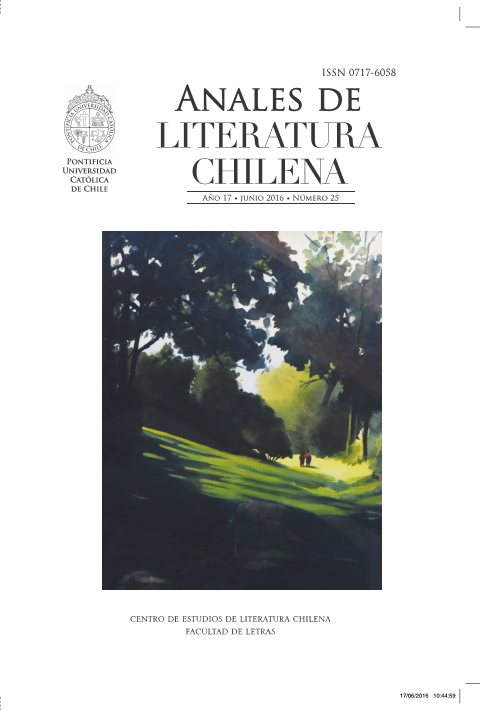Nomadities and rootedness: New territories for wanderings and exile (Cadáver tuerto by Eduardo Labarca)
DOI:
https://doi.org/10.7764/ANALESLITCHI.25.05Keywords:
Territory, Nation, New Historical NovelAbstract
Analysis of the condition of exile as a loss of belonging to a territory (Augé; Delgado). Cadáver Tuerto exposes this estrangement through the examination of the adverbial attributes of time and space that afect Lautraro, a chilean exiled in Europe. The tensión nomadities vs rootedness is expressed as a correlation of senses as those that are updated in Lautraro due to the arrest abroad of the person who ordered his exile
(Richard). The episode ends up being dislocated by the mock television media (Martín-Barbero, De los medios; Eco, Baudrillard) so that Lautraro, having returned temporarily to his original country, decides to return to the territories of exile to acquire new spaces of rootedness. By the same, according to this study, the novel exposes that the condition of the nomadic contemporary subject ends up destabilizing the “unequivocal notion of identity and homeland” (Aínsa) and, in this way, it clearly illustrates one of the conditions which is most pertinent to the present period.
Downloads
Downloads
Published
How to Cite
Issue
Section
License

This work is licensed under a Creative Commons Attribution-NoDerivatives 4.0 International License.


